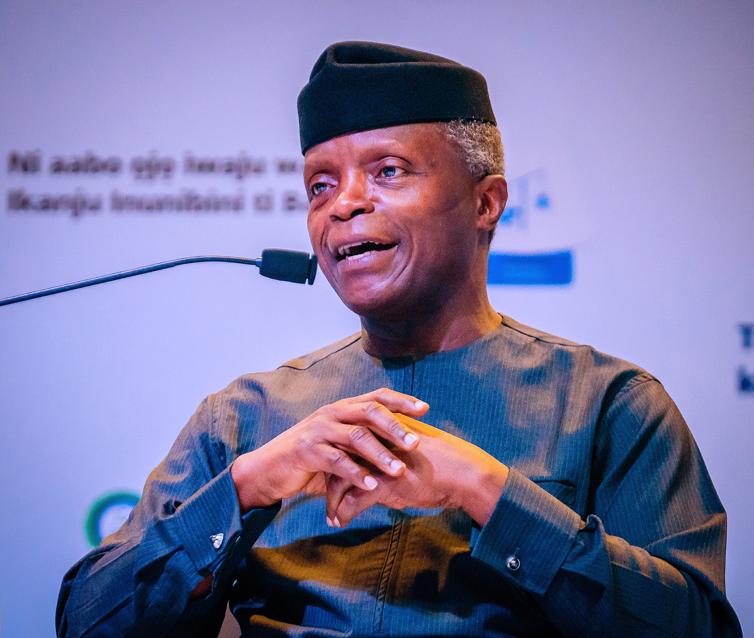
Vice President Yemi Osinbajo has described the Electoral Bill currently being considered by both executive and legislative arms of government as a testament to the President, Major General Muhammadu Buhari (retd.), administration’s commitment towards improving Nigeria’s electoral process.
Osinbajo stated this on Tuesday at the 53rd Conference of the National Association of Law Teachers, held at Bayero University, Kano, with the theme: “Law, Democracy and the Electoral Process.”
In a statement by his spokesman, Laolu Akande, titled, ‘Pursuit of Justice is What Helps Build a Good Society, Osinbajo says to Law Teachers at BUK’, the vice president said the delay was to ensure the current administration leave behind a legacy of inclusive democratic norms through the bill.
He said, “The Bill itself has been the subject of robust engagement between the government and civil society. While some have expressed reservations about the time it is taking to enact the new law, we should remember that a truly inclusive democratic, deliberative process often takes time.
“I am confident that the legislation that emerges will be one that reflects a broad consensus between all the stakeholders,” he said.
While speaking on the essence of democracy and the need to preserve democratic institutions in Nigeria and other parts of Africa, the Vice President noted that even as Nigeria has enjoyed 22 years of unbroken democracy, the country is still a young democracy.
“We have witnessed a series of peaceful transitions of power. This is a huge credit to the democratic sensibilities of our people. Along the way, we are learning valuable lessons that can only make us better practitioners of liberty.
“Many of our institutions are still in their infancy, and we must carefully guide them into maturity. We recognize that the price of liberty is eternal vigilance,” Osinbajo observed.
The vice president added that “while INEC continues to improve its capacity to conduct credible elections, particularly through the deployment of technology; we recognize that democracy is about much more than voting. It is also about constitutionalism, rule of law, and respect for civil liberties. We must diligently work to uphold these principles.
“Our progress as a democracy must therefore also be prosecuted in terms of the struggle to reduce the basic problems of ill-health, malnutrition, illiteracy, and famine which daily afflict our people. Where social and economic rights are unsecured, people are unable to fully maximize their civil and political rights.”
Copyright PUNCH.
All rights reserved. This material, and other digital content on this website, may not be reproduced, published, broadcast, rewritten or redistributed in whole or in part without prior express written permission from PUNCH.
Contact: [email protected]




